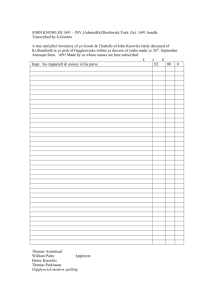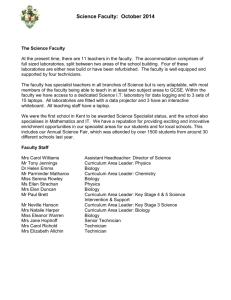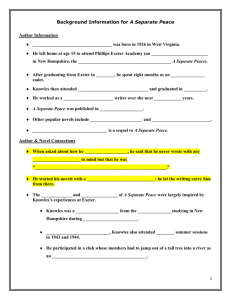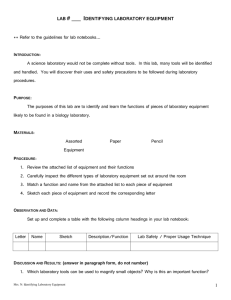notes - Mrs. Knowles
advertisement
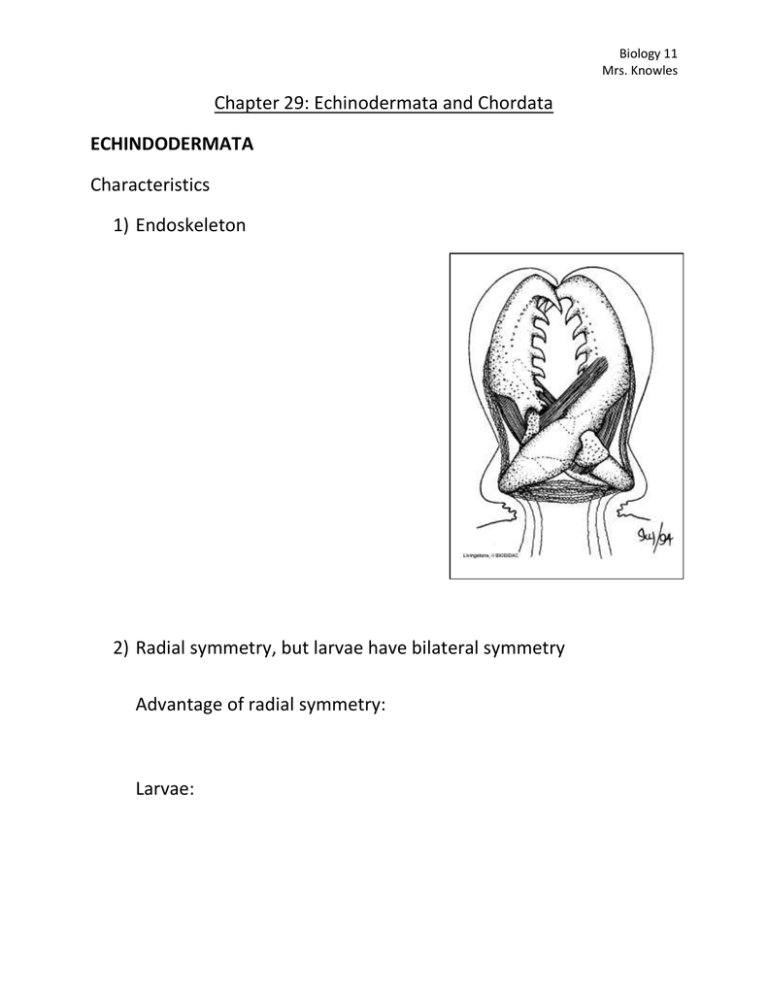
Biology 11 Mrs. Knowles Chapter 29: Echinodermata and Chordata ECHINDODERMATA Characteristics 1) Endoskeleton 2) Radial symmetry, but larvae have bilateral symmetry Advantage of radial symmetry: Larvae: Biology 11 Mrs. Knowles 3) Water vascular system Functions: Biology 11 Mrs. Knowles 4) Central nerve ring 5) Deuterostomes Definition: Classes of Echinoderms 1) Asteroidea Includes: Characteristics: Biology 11 Mrs. Knowles Feeding: Biology 11 Mrs. Knowles 2) Ophiuroidea Includes: Characteristics: Feeding: 3) Echinoidea Includes: Characteristics: Feeding: Biology 11 Mrs. Knowles 4) Holothuroidea Includes: Characteristics: Feeding: 5) Crinoidea Includes: Characteristics: Feeding: Biology 11 Mrs. Knowles 6) Concentricycloidea Includes: Characteristics: Feeding: Origins of echinodermata Biology 11 Mrs. Knowles Phylum Chordata Three subphyla: 1) Urochordata 2) Cephalochordata 3) Vertebrata CHARACTERISTICS OF CHORDATES: ** at some point during development** A. Notochord B. Dorsal hollow nerve cord C. Pharyngeal pouches / slits Biology 11 Mrs. Knowles D. Postanal tail Other characteristics of chordates: Subphylum Urochordata: Tunicates Biology 11 Mrs. Knowles Subphylum Cephalochordata : Lancelets Biology 11 Mrs. Knowles Origins Biology 11 Mrs. Knowles Echinoderms 1. What characteristic is shared by all echinoderms? ___________________________________________________________________________ ___________________________________________________________________________ 2. What type of symmetry do most adult echinoderms have? _______________________________________________ 3. What is the water vascular system in echinoderms used for? __________________________________________________ 4. What type of asexual reproduction can occur in starfish? __________________________________________________ 5. What must be present for this type of reproduction to occur? __________________________________________________ Chordates 1. List the four general characteristics shared by all chordates. a. ________________________________________________________________________ b. ________________________________________________________________________ c. ________________________________________________________________________ d. ________________________________________________________________________ 2. What is the main difference between invertebrate chordates and vertebrate chordates? Biology 11 Mrs. Knowles ___________________________________________________________________________ ___________________________________________________________________________ ___________________________________________________________________________
